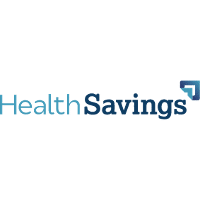For a single big medical expense, they may amount to thousands of dollars per year. Meanwhile, the tax-deductibility of medical costs is difficult and inaccessible to the vast majority of taxpayers. That is why Health Savings Accounts, or HSAs, are becoming increasingly common. They provide more people with the ability to receive a tax exemption on medical costs. If you don’t already have an HSA, there’s no better time than now to take advantage of this significant tax-advantaged gain. It’s simply a matter of deciding where to open an HSA. Make it a reality by following this guide on Best HSA Accounts in 2023. Here we’ll be comparing the HSA fees, the account card, investing options, and mobile apps.
Furthermore, selecting the Best HSA provides you with another long-term, tax-advantaged investing opportunity. This allows you to expand your savings toward financial independence and/or early retirement.
Read Also: HSA Investment: Best Options and Tax Benefits
2023’s Best 7 Health Savings Account (HSA) Providers
- Best Overall: Health Savings Administrators
- Best HSA account for No Fees: Lively
- The Best for Families: The HSA Authority
- Best for No Minimum Balance Requirement: HSA Bank
- HSA Account with Best Investing Options: Fidelity
- The Best Mobile App: HealthEquity
- Best for Employers: Further
Best HSA Account Overall in 2023
Health Savings Administrators
HealthSavings Administrators is our HSA account’s best pick overall because it allows you to keep investing in Vanguard funds with low-cost ratios and no trading fees. HealthSavings Administrators also provide accounts with no minimum investment cap. This allows you to spend every dollar you put into your HSA right away.
Advantages
- You get to invest your HSA funds in Vanguard funds that have no minimum investment requirement.
- You get a HSA debit card that you can use for medical expenses.
- Vanguard fund options have an average underlying fund fee of 0.14 percent, which is lower than rivals.
Disadvantages
- Annual maintenance HSA fees vary but are usually $36 a year.
- There is a 0.25 percent annual investment fee.
HealthSavings Administrators was established in 1996 as a provider of medical savings accounts (MSAs). However, the organization began concentrating on health savings accounts in 2004, following the passage of legislation that created HSAs. The company now focuses solely on HSAs, particularly accounts with some of the best and lowest-cost investing options available today.
They do not require a minimum account balance for you to invest your funds. health savings Administrators claim that their HSA balances are five times higher than competitors because they attract knowledgeable, cost-conscious customers.
You can open a health savings account with this provider online in under 20 minutes. You’ll receive an HSA debit card that allows you to pay for eligible medical expenses directly from your account. This HSA industry pioneer also provides a wealth of educational materials, such as videos and webinars, to assist you in selecting the best investment mix for your account.
Best HSA Account for no Fees in 2023
Lively HSA
There are no costs to open or retain an HSA with Lively, and there are no secret fees. If you’re looking for an HSA account with no fees, Lively is a good choice to consider.
Advantages
- There are no payments for their HSAs.
- Open and finance your account quickly and easily online.
- TD Ameritrade is a great place to invest your HSA money.
- Lively provides a mobile app that allows you to monitor your HSA funds while on the go.
- Get a free HSA debit card to pay your medical bills.
Disadvantages
- Only one of Lively’s two investment options is free; the other has an annual charge of 0.50 percent.
- It’s a small business with just a few years of experience.
Lively was created in 2016, so this HSA provider is relatively new. However, we choose Lively as the best for no fees because their HSAs have no account opening fees, maintenance fees, fund transfer fees, debit card fees, or any other secret fees. Lively HSA also provides you with a debit card linked to your account. This allows you to pay for medical costs on the phone or in person, with the money immediately deducted from your HSA.
Lively is entirely online, and they also have a mobile app that allows you to monitor your HSA funds using your smartphone. You will also use the app to keep track of your healthcare payments and your health insurance deductible. Lively also provides paperless account rollovers and trustee-to-trustee fund transfers.
Users can choose between two investment options on Lively. TD Ameritrade’s Self-Directed Brokerage Account is free to use, while Devenir’s Guided Portfolio has an annual fee of 0.50 percent. To invest your capital, neither requires a minimum balance. However, there is no need for a minimum balance to invest your money. So, you can begin with a small amount if you prefer.
Read Also: Lively HSA Review: Investment Options and fees
Best HSA Account for Family in 2023
The Health Security Administrator (HSA)
The HSA Authority is the best choice for families because of its abundance of online account management options. Also, you can easily delegate financial tasks to other members through their online banking portal. Their online functionality allows two parents or spouses to manage HSA assets, make donations, and pay medical bills on behalf of the entire family.
Pros Superior online family functions such as shared account access, online bill pay, mobile deposit, text banking, and more.
Pros
- It gives an HSA Visa debit card for medical expenses.
- It is simple to open and finance an account online.
Disadvantages
- There will be no investment opportunities available unless you have saved at least $1,000.
- An annual fee of $36 is charged for investment supervision.
- The expense ratios of various investment options differ.
We chose The HSA Authority as our best option for families for a variety of reasons, but it all starts with the fact that they provide so many options for online HSA co-management. Their sharing platform allows the primary account manager to assign and exchange responsibilities with other plan holders. You can also take advantage of online bill pay, text banking, mobile deposits, e-statements, and other web-based services.
The HSA Authority was founded in 2004, but it is important to note that this HSA provider is part of Old National Bank, which has a history dating back to 1834.
There is no minimum balance requirement to open an account with The HSA Authority. However, you must have at least $1,000 in your HSA to invest in underlying funds. It is important to note that you do not have to retain the $1,000 to stay invested, but you must reach the threshold. In terms of investment options, the HSA Authority works with their investment partner, Devenir, to enable you to invest in mutual funds.
Your account is subject to a $36 annual account management fee, and you will earn only a small amount of interest until you are able to invest for the long term. Health savings accounts with The HSA Authority, on the other hand, are simple to open and fund online, and you can add money to your account at any time thanks to online banking and account transfer features. If you choose, you will also receive a Visa debit card that you can use to pay medical bills directly from your HSA.
Best HSA Account for no Minimum Balance Requirement in 2023
HSA Bank
We chose HSA Bank because you can open an account online in less than 10 minutes and there is no minimum deposit needed to get started. This means you can begin saving with any amount and conveniently finance your account online.
Advantages
- There is no minimum account balance required to open an account.
- You have the choice of investing your funds with TD Ameritrade or Devenir.
- If you keep at least $3,000 in your HSA, there are no account management fees.
Disadvantages
- If your balance is less than $3,000, you would pay a monthly account maintenance fee of $2.50.
- Your account will be closed for a $25 charge.
- To invest your HSA money, you must have a minimum account balance of $1,000.
- Fees for investments differ.
The origins of HSA Bank can be traced back to 1913 when it was known as the State Bank of Howards Grove in Wisconsin. Since this was before HSAs, they acted as a community bank, selling conventional banking products. However, the organization has expanded and shifted its attention to health savings accounts (HSAs), flexible spending accounts (FSAs), and other forms of health payment plans, and we chose them for our study because they have no minimum balance requirement.
HSA Bank not only offers versatile HSAs with no money needed to start, but they also have a client assistance center that is open 24 hours a day. However, if the balance falls below $3,000, you will be charged a $2.50 monthly account maintenance fee.
You can earn a fixed interest rate on your savings with HSA Bank or invest in stocks, shares, mutual funds, ETFs, and other investment options through Devenir or TD Ameritrade. However, bear in mind that you must have a minimum balance of $1,000 in order to invest your HSA funds with this provider.
HSA Account with the Best Investing Options in 2023
Fidelity
:max_bytes(150000):strip_icc():format(webp)/Fidelity-41174d3f6da74c94ac92e080af004269.jpg)
You can invest your HSA funds in Fidelity mutual funds and index funds. Fidelity also has a few funds that are only open to clients that have a Fidelity HSA, such as the Fidelity Health Savings Fund (FHLSX) and the Fidelity Health Savings Index Fund (FHSNX).
Advantages
- Invest your HSA in Fidelity’s high-quality, low-cost mutual funds and index funds
- There are no account minimums or maintenance fees.
- You will be issued an HSA debit card that you will use to pay for qualifying healthcare expenses.
Disadvantages
- When you invest your HSA funds, you will incur underlying fund expenses, which vary.
- Expense ratios as high as 1.03 percent are available for some Fidelity HSA investment options.
If you’re searching for a long-standing HSA provider, you might be interested to know that Fidelity was established in 1946.
However, we chose Fidelity for our ranking not because of its durability, but because you can invest your HSA funds in so many low-cost long-term growth options.
Fidelity also has two funds designed specifically for HSA participants, the Fidelity Health Savings Fund (FHLSX) and the Fidelity Health Savings Index Fund (FHSNX). FHSNX, in particular, has a 0.17 percent cost ratio, making it an affordable choice for long-term investors looking to increase their HSA balances over time. Furthermore, Fidelity allows you to choose from a variety of other investments available on their website, including hundreds of funds from Fidelity, JP Morgan, Wells Fargo, T. Rowe Price, and others.
Fidelity does not charge any account opening or maintenance fees, nor do you have to pay any fees to use your linked HSA debit card account. They also make opening and funding your account online easy.
Best HSA Account Mobile App in 2023
HealthEquity
:max_bytes(150000):strip_icc():format(webp)/Health_Equity-ac8c1893c3ae4bdd918ba28a978326da.jpg)
While many HSA providers have their own mobile app, we chose HealthEquity as the best mobile app because of the variety of functions it provides. Not only can you use the HealthEquity app to monitor your HSA funds and healthcare expenditures, but you can also take a picture of a healthcare bill and make a claim using your mobile device.
Advantages
- A handy smartphone app makes it easy to manage your healthcare expenses.
- Invest in Vanguard low-cost assets.
- There are no account minimums or maintenance fees.
- The Dave Ramsey Show has nationally endorsed this product.
Disadvantages
- A $500 minimum balance is required to invest; a $2,000 minimum balance is required to invest in mutual funds.
- The management fees for the underlying investments differ.
HealthEquity was created in 2002 and now manages more than $8.1 billion in custodial assets. HealthEquity has one of the most useful healthcare applications in the industry, with an emphasis on the future. You can use the HealthEquity app to keep track of your HSA balance and progress, as well as your healthcare spending throughout the year. Best of all, you can use your favorite mobile device to take a snapshot of your medical bills and file a claim in a few taps.
Opening an account with HealthEquity is easy, and the entire process can be completed online in less than 15 minutes. You’ll also get an HSA visa debit card that allows you to reimburse medical costs directly from your account, which can be useful if you need to pay for a doctor’s appointment or your co-pay sum.
HealthEquity HSAs also have no account management fees, though their underlying investment options through Vanguard and other firms have varying investment fees. Also, keep in mind that you must have a minimum account balance of $2,000 in order to invest your HSA funds in mutual funds.
Read Also: Health Savings Account Rules (HSA Rules) 2023 (Updated!)
Best HSA Account for Employers in 2023
Further
:max_bytes(150000):strip_icc():format(webp)/Further-1c3094f8e8f24a5e9bb4d29644d3b768.jpg)
Further, based on the number of accounts they help handle, is the strongest HSA provider for employers. Further can assist business owners, including small business owners, in managing corporate health insurance plans, flexible spending accounts, transportation reimbursement accounts (TRAs), dependent care assistance programs (DCAPs), and other benefits.
Advantages
- In one location, manage several separate employee reimbursement and savings accounts
- Employees can increase their balances by earning interest rates as high as 0.70 percent.
- When an account balance of $1,000 or more is reached, Charles Schwab offers investment options.
Disadvantages
- Underlying fees for investment options differ.
- An extra $18 a year is charged for savings accounts.
- Employers who open accounts for their employees are also charged varying fees, and pricing must be obtained by phone.
Further was founded in 1989 with the aim of simplifying the healthcare payment process. Although you can open a person or family HSA with More, this provider stands out because of the variety of healthcare account management services available to employers.
Businesses may expect seamless management on a single platform with the Further HSA, and their workers can monitor their HSA using their mobile devices while enjoying the benefits of simplified claims and reimbursement methods. Further HSA can be provided as a stand-alone product to workers, or it can be combined with other benefits such as FSAs, transportation reimbursement accounts, dependent care support services, and more to attract and retain top talent.
Further, HSAs can gain a variable interest rate depending on market conditions, but workers can invest with Charles Schwab until they have at least $1,000 in their HSA. For investment accounts with Charles Schwab, an annual fee of $18 is expected, and included investments have their own fees that differ.
Finally, one disadvantage is that Further HSA charges continuing payments to employees who open HSA and other reimbursement accounts, but these fees differ and you must call in for pricing.
Read Also: Health Savings Account (HSA): Contributions and Eligibility Requirements 2023
How We Selected the Best Health Savings Account (HSA) Service, Providers
Businessyield compared more than 15 of the top providers to see how they line up to find the best HSAs on the market today. We looked at recurring fees and account maintenance costs, investment options, the ease of opening an account, debit card access, and minimum account requirements. The HSA providers who made our list stand out for a variety of reasons, including their lack of fees, exclusive or lucrative investment opportunities, or the technologies they use.
How is an HSA account affected by Medicare?
Once an individual enrolls in Medicare, they are no longer eligible to contribute to an HSA account. However, funds in the account can still be used to pay for qualified medical expenses.
What is the deadline for contributing to an HSA account?
The deadline for contributing to an HSA account for the current tax year is typically April 15 of the following year. However, some HSA administrators may have earlier deadlines, so it’s best to check with the specific account provider.
How is an HSA account different from a flexible spending account (FSA)?
An HSA is a tax-advantaged savings account that is only available to individuals enrolled in a high-deductible health plan (HDHP), while an FSA is a type of spending account that can be offered by employers as part of a benefits package. An HSA account provides more flexibility in terms of how and when funds can be used, as well as the ability to invest funds, while FSAs typically have “use-it-or-lose-it” rules and cannot be invested.
Can HSA account funds be used to pay for a spouse’s or dependents’ medical expenses?
Yes, HSA funds can be used to pay for qualified medical expenses for the account holder’s spouse and dependents.
Are HSA funds protected from bankruptcy?
Yes, HSA funds are protected from bankruptcy under federal law. This means that they cannot be seized to pay creditors in the event of a bankruptcy filing.
How does an HSA account affect an individual’s taxes at retirement?
HSA funds can be withdrawn tax-free at any time to pay for qualified medical expenses. If the funds are used for non-medical expenses, they are subject to income tax and a 20% penalty if the account holder is under age 65. After age 65, the 20% penalty is no longer in effect, but the funds are still subject to income tax.
What happens to HSA funds if the account holder dies?
If the account holder dies, their HSA funds can be transferred to their surviving spouse tax-free. If the surviving spouse is not the named beneficiary, the funds will be included in the account holder’s estate and may be subject to estate taxes.
Best HSA Accounts FAQS
When can I contribute to HSA for 2023?
Individuals who are eligible to contribute to an HSA can make contributions at any point during the 2023 tax year, including up through their federal tax return due date (April 15, 2023)
Are HSAs Worth It?
If you have a high-deductible health insurance plan and you qualify for an HSA, then opening and funding an account is definitely worth it. Even if you do not invest your HSA funds and you only add money to your account as you need it, funneling contributions into an HSA before you pay medical bills can help you reduce your taxable income and save money on taxes during the year you contribute.
Also note that, once you reach the age of 65, you can withdraw money from your HSA penalty-free without having to use the funds for healthcare expenses. This can make an HSA account smart alternatives for backup retirement savings you can tap into if you don’t wind up using your money for healthcare expenses.
Is having two HSA accounts illegal?
As long as you have an HSA-eligible health plan, there’s no limit on how many HSAs you can have. As far as the IRS is concerned, the only limit is how much money you can contribute to your HSAs each year. You can contribute it all to one HSA, or spread it out across two or more account
Is Fidelity a good HSA?
In our study of the top 10 investment HSAs, Fidelity ranks as the lowest-cost provider. Fidelity does not charge any account transactions fees or any separate account fee to invest.







